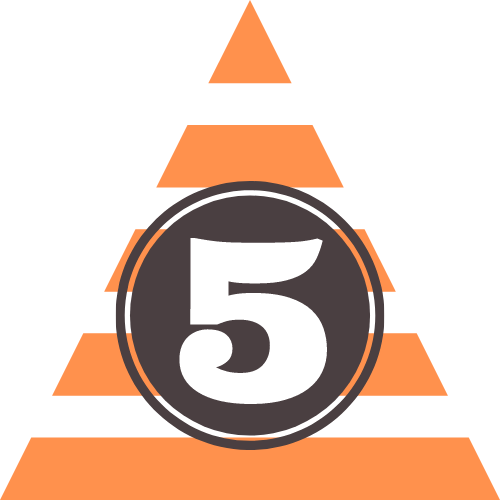Do You Need 10,000 Hours of Practice?

How do you get good at something? The answer has always been practice, practice, practice. The real question is, how long does it take to get good? There is the saying, that has been around for a while, that it takes 10,000 hours to master a skill. Does it really take 10,000 hours to become a master?
To say something is wrong we first must define what it is. The 10,000 hour rule states that someone who practices a skill the correct way for 10,000 hours they will become a master, or expert, in it. This intuitively seems to make sense. That is a lot of time. Ten thousand hours is 416 or so days. Surely if you do something for that long you should master it.
This theory was pushed into popular culture in 2008 after the publication of the book Outliers: The Story of Success by Malcolm Gladwell. In this book, Gladwell was trying to find out what makes a person successful. He wanted to know what they did to master a skill. After looking at various successful people he presented the idea of the 10,000 rule. The idea was based in part on a study by K. Anders Ericsson of violin students from the music academy in Berlin. In this paper, they found that the most successful students had practiced an average of 10,000 hours.
Unfortunately, Gladwell greatly simplified the results of Ericsson's study. In this study, they actually said that the best students had put in around 10,000 hours by the time they were 20. He never said they were masters, just on their way to being good. They also said that the number was an average and an arbitrary number. Finally they also said that practice alone was not enough, it had to be quality practice. Even further, a recent study out of Princeton tears apart the 10,000 hour rule more. In an analysis of 88 studies on deliberate practice, researchers found that volume of practice accounted for just a 12% difference in performance in various domains.
That brings us to the main issue at hand, if 10,000 hours of practice isn't enough to make you really good at something, what is?
What you need is a combination of several different things, outlined in our 11 Commandments of Mastery course – but primarily, you'll need a solid combination of mindful, focused practice, and immersion in the culture, history, expertise, and practice of the skill you're trying to master.
The good news is that if you take lessons here at Dojo U, you are already are started on this process.
Mindful practice means that you are working in a specific, organized way, deliberately trying to push yourself past your comfort zone. When doing this you work on specific problem areas, one at a time, mastering those before moving on. A good example of this is a tennis player who spends hours working on their serve. Not just hitting the ball over and over again, but working to make sure that the ball goes exactly where they want it each time. This works on both the individual level and with whole groups.
You also need to have someone who can provide feedback on what you are doing. No amount of practice will help you improve if you practice incorrectly. Think about it: If you spend 10 hours practicing a tune and in all 10 hours you play the wrong embellishment or play it incorrectly, you are practicing wrong.
To improve, you also need someone who can look at what you are doing, show you what needs work and what is going well. You also need to provide the push to work on something more advanced as you improve.
Practice cannot be doing the same thing you already know, over and over. You see this in pipe bands sometimes. They spend almost every practice playing the same music, week after week. When you do this you play the same embellishments in the same spots and you get used to them, you get sloppy, and then everyone is practicing sloppiness.
To push yourself, as an individual or a band, you need to work on new things. Learn tunes that are a little too hard for you. When you do this you will see familiar things in new settings. Embellishments will be in new patterns, on different notes. As you work to master these in the new tune, your old tunes will improve as well.
The important part is to have someone who can provide feedback. Due to the way the brain works, when you practice what you hear in your head might not be what you are actually doing. The brain has the tendency to fill in the blanks at times. You need someone who you trust and can understand what you are trying to do.
If you practice correctly, in a specific, purposeful and orderly way, and you have someone who can provide feedback and suggest improvements, the amount of time you spend practicing will not matter. It's about quality of practice and immersion time, not quantity.
Does this mean you will be a bagpipe master after 10,000 hours?
Probably not, but you will improve at a faster pace.






I am returning to the pipes after a 30 year absence.
Since November of last year I have been practicing each day, and the basic skills are returning.
I am able to practice each day, without distractions,
I am playing the chanter well enough to practice consistently.
I am playing my basic tunes on my pipes, but have not opened the drones yet.
I am reading your book and am following through the commandments.
What I am looking for is a suggested 1 hour practice outline given my current stage.
I realize I can expand, refine, re-focus.
Just an outline would be great
By the way, the immersion process was much more beneficial than I could have imagined.
There is nothing quite like having a dream with The Dark Island rolling through it.
Hi Michael,
We've got a couple of practice plans but the best place to start is with our 11 Commandments course. It's material you are familiar with from Andrews book but help you put in place or reassure that you're covering all the bases. We generally recommend a nice focused practice of about 15 - 30 mins but depending on your level, an hour is doable. Short and focused though is always better than a full hour of semi-practice. After the 11 commandments, our "Practice Planner Course" or even our "6 Months to the Next grade Level" would help you define a practice routine that's right for you. We can always provide some feedback along the way too on Discord!
Looking forward to helping more.
Cheers,
Carl